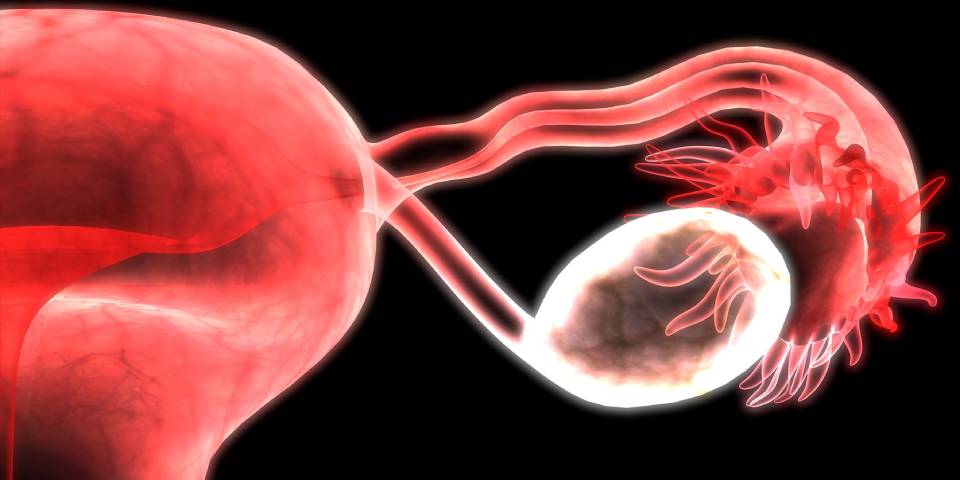Primary Ovarian Insufficiency(POI), also known as premature menopause, is a condition where a woman’s ovaries stop functioning before the age of 40. This can lead to infertility and hormonal imbalances.
Understanding the causes, identifying the symptoms, and analyzing available therapies are important for managing this difficult reproductive health issue effectively. Reasons for Premature Ovarian Failure include various elements, including genetic abnormalities, autoimmune disorders, chemotherapy, radiation therapy, and certain medical conditions. Identifying the underlying causes is crucial for the therapy of Premature Ovarian Insufficiency and managing the condition’s impact on fertility and overall health.
Dr. Shraddha Galgali is the Best Female Gynecologist In Punawale, PCMC, and she is offering Premature Ovarian Insufficiency treatment in Punawale.
What is Primary Ovarian Insufficiency(POI)?
Primary ovarian insufficiency used to be called premature ovarian failure. It’s a condition that affects women well before they reach menopause. POI is a situation where the ovaries struggle to function correctly before the age of 40. The ovaries stop releasing eggs and stop producing hormones (estrogen, progesterone, testosterone).
The incidence of POI increases with age:
- 1 in 10,000 females in their teens
- 1 in 1,000 females in their twenties
- 1 in 100 for females in their thirties.
During perimenopause, which is the growth period before menopause happens, the ovaries produce fewer and fewer hormones until they run out of eggs to release, and a female’s periods stop.
The menopause (when your periods stop) happens at a middle age of 51 years. However, POI happens more than 10 years before this due to prematurely decreasing ovarian function.
What Are the Causes of Primary Ovarian Insufficiency(POI)?
There are several causes of primary ovarian insufficiency. Dr. Galgali explains in many cases, the cause of POI is unknown. Common causes of POI include:
- Chromosomal abnormalities (i.e. Fragile X mutation, Turner syndrome, gonadal dysgenesis)
- Ovary damage from chemotherapy or radiation therapy
- Some endocrine disorders (i.e. hypoparathyroidism, hypoadrenalism)
- Infiltrative processes
- Infectious processes
- Some autoimmune conditions
What are the Symptoms of Premature Ovarian insufficiency?
Dr. Shraddha Galgali suggested the following are the signs of Premature Ovarian insufficiency:
- Irregular or Absent Menstrual Periods: One of the hallmark signs of POI is irregular menstrual cycles or complete cessation of periods. Women may experience irregular, light, or missed periods.
- Hot Flashes and Night Sweats: Like menopause, women with POI may experience sudden and intense episodes of heat, often accompanied by sweating, especially at night.
- Vaginal Dryness: POI can cause a decline in estrogen levels, prompting vaginal dryness and uneasiness during intercourse.
- Mood Swings and Irritability: Hormonal vacillations can bring about temperament swings, crabbiness, and profound changes.
- Decreased Libido: Some females may experience a reduced interest in sex due to hormonal imbalances.
- Fatigue: Feeling tired and fatigued is a common complaint among women with POI.
- Difficulty Conceiving (Infertility): Since POI includes diminished ovarian capability, it can prompt trouble imagining normally.
- Trouble Sleeping: A sleeping disorder or trouble nodding off may happen because of hormonal changes and related side effects like night sweats.
- Changes in Skin and Hair: Hormonal imbalances may guide to changes in skin texture and increased hair loss.
- Osteoporosis: POI can raise the risk of bone density loss, making women more sensitive to osteoporosis and fractures.
How is primary ovarian insufficiency (POI) diagnosed?
If your periods have stopped or are irregular, Dr. Shraddha Galgali will do blood tests to check your hormone levels and rule out pregnancy, thyroid disease, and other health conditions.
The primary blood tests you’ll probably take will count your blood levels of:
- FSH (follicle stimulating hormone). Your pituitary gland makes this hormone, which suggests the ovaries discharge an egg every month.
- Estradiol. This is a kind of estrogen made by your ovaries.
Results from these tests help Dr. Galgali comprehend what might be the deal with your ovaries.
Dr. Shraddha Galgali may diagnose you with primary ovarian insufficiency if you’re under age 40 and have any of the following:
- High FSH levels (in the menopause range) on two additional tests done at least 1month apart
- Low estradiol level, which signifies your ovaries aren’t making enough estrogen
- No periods or irregular periods ( less frequently than like every 35 days) for 3 months in a row.
Dr. Galgali might also recommend that you get a transvaginal ultrasound. This imaging test shows your ovaries. Women with POI usually have smaller ovaries with few follicles. If you do have this situation, you may get more trials to check on the reason.
What are the effects of Primary Ovarian Insufficiency (POI) on health?
Low levels of estrogen can impact more than just your capacity to get pregnant. Estrogen is necessary for a healthy heart and bones, among other things. If your ovaries don’t make enough of this hormone, you may be more likely to have other health illnesses, such as:
- Anxiety and depression
- Eye disease, including dry eye
- High cholesterol and heart disease
- Hypothyroidism (underactive thyroid)
- Osteoporosis
Talk to a gynecologist about ways to lower your risks. A healthy lifestyle and medication may help prevent some of these conditions.
How Is Primary Ovarian Insufficiency (POI)Treated?
Although there’s no cure, there are therapies that can ease symptoms and potential difficulties related to low estrogen levels.
Hormone replacement therapy (HRT) is the most common. This therapy usually combines estrogen and progestin, although fertility specialists may prescribe other forms. You might take it by mouth, put it on your skin, or spot it in your vagina. Make sure that you and your doctor speak about the potential side effects and risks if you’re considering this type of therapy. Dr. Shraddha Galgali is one of the best Pregnancy Specialist in Punawale and she is usually prescribes calcium and vitamin D supplements to prevent bone loss, which can happen when estrogen levels drop. If you don’t work out, you’ll need to make fitness a habit, since weight-bearing activities can help keep your bones strong and your heart healthy.
If you are hoping to get pregnant but find that you have primary ovarian insufficiency (POI), Consult With Dr. Shraddha Galgali is provides Infertility Treatment in Punawale, Pune. The timely diagnosis reasons and therapy of premature ovarian insufficiency help overcome the problem to a great extent. There are many small and big clinics in the country offering premature ovarian insufficiency treatment around the clock. Dr. Shraddha’s Excella Women’s Wellness Clinic is one of the top infertility clinics for the best and most satisfactory treatment for infertility in females.

